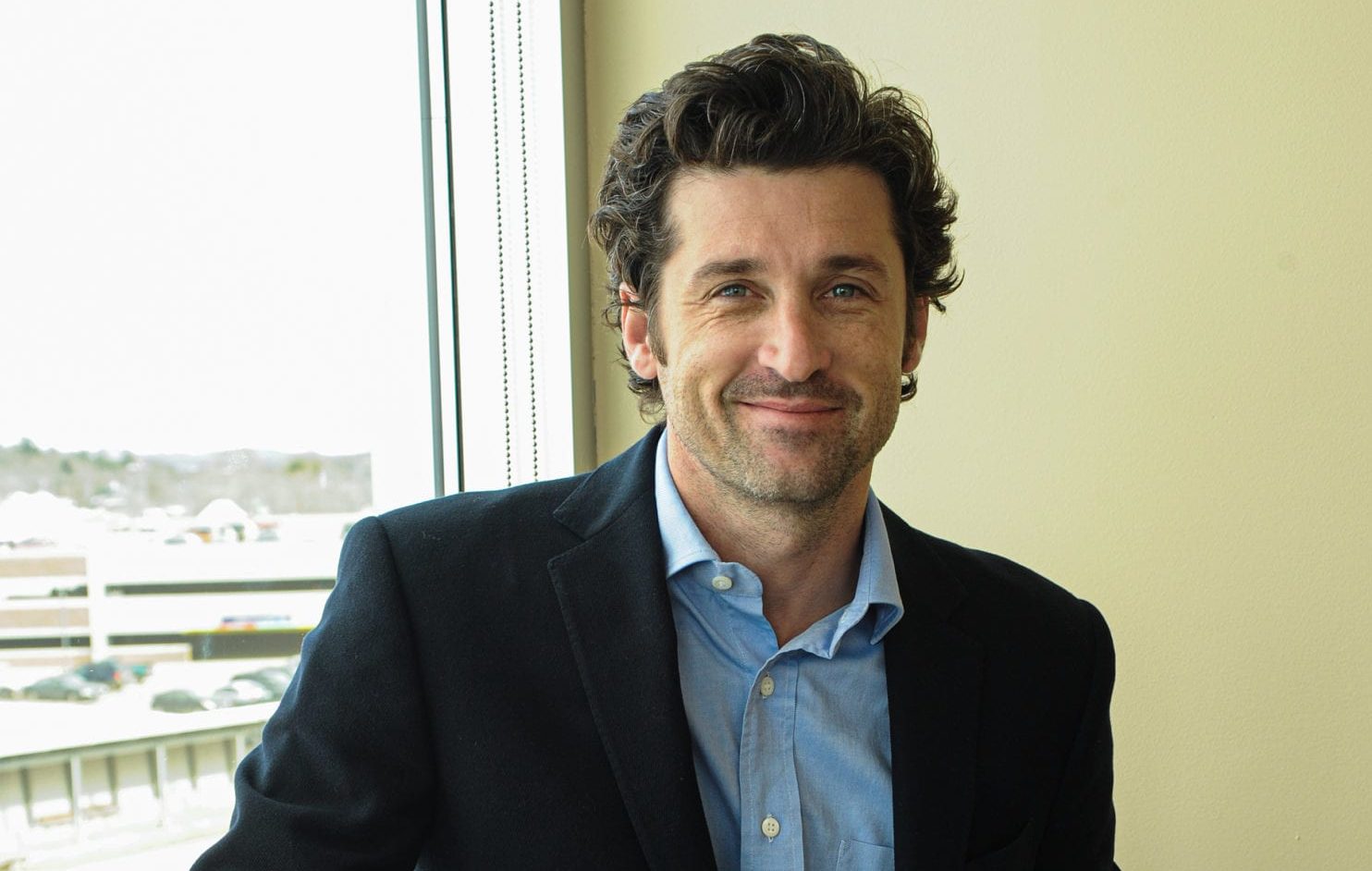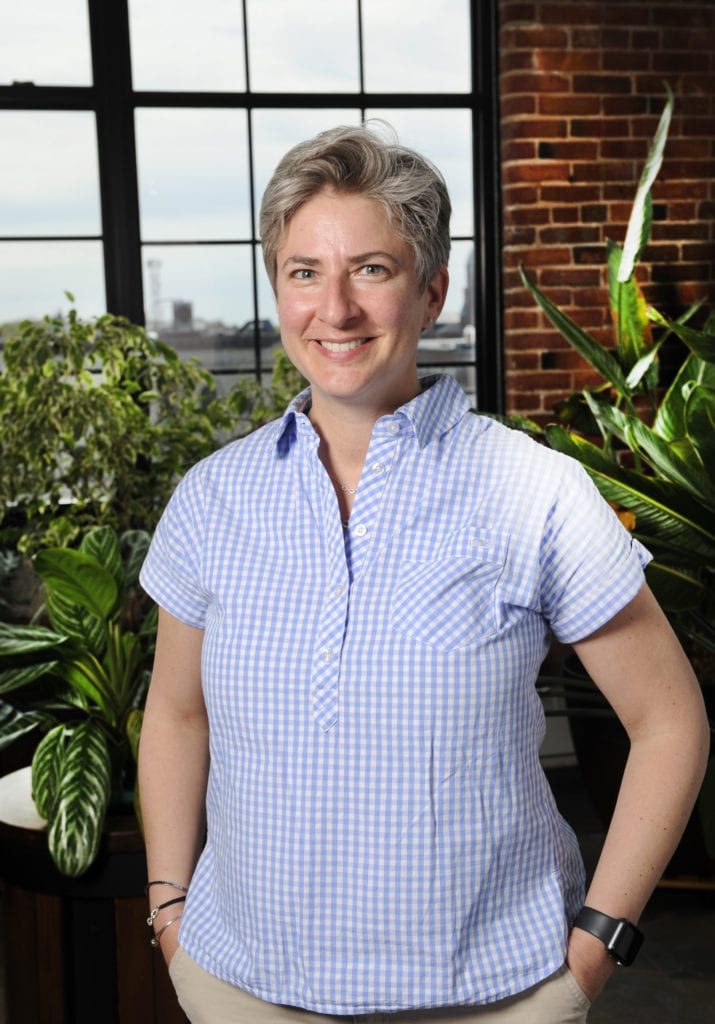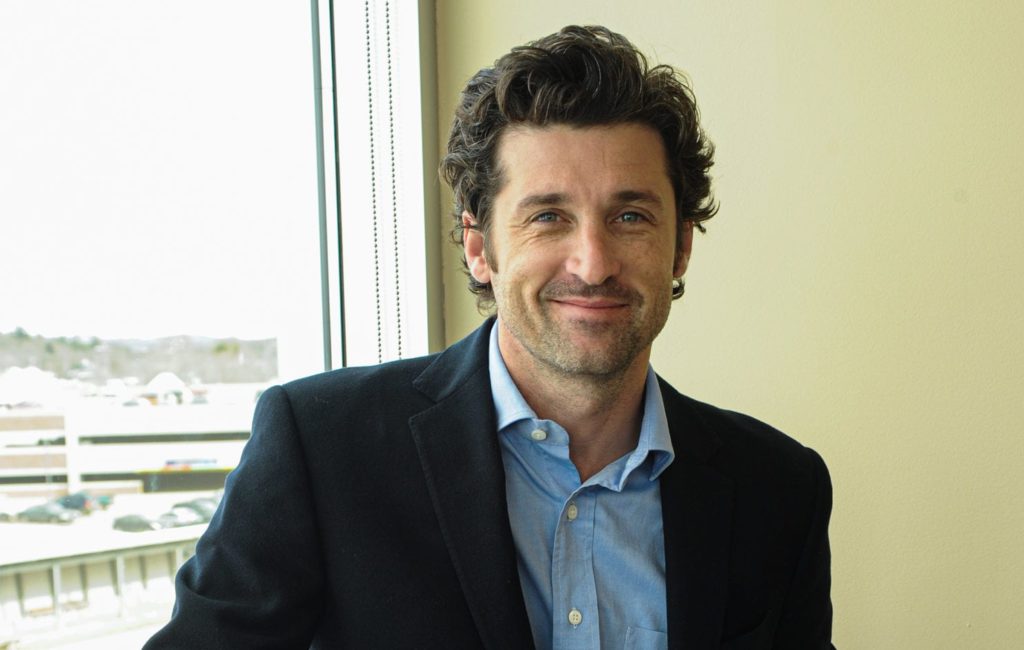By Toby Haber-Giasson
Imagine getting the news no one wants to hear: cancer. Modern medicine can treat the disease, but how do you live with it? For over a decade, the Dempsey Center has offered answers.
Treat the person, not the disease
The Dempsey Center’s mission is “to make life better for people managing the impact of cancer.” Their no-cost services support healing and symptom management by addressing the emotional, mental, and physical needs of cancer patients and survivors, their caregivers, and family members of all ages.
The Dempsey Center (DC) provides a wide range of evidence-based cancer support services including massage and acupuncture, counseling and support groups, and nutrition and fitness classes.
“People often say, ‘I can manage my life better now,’” relates DC Communications Manager Nancy Audet. “What an amazing difference that makes in someone’s quality of life.”
Impetus
Turner natives Patrick Dempsey and his sisters, Mary and Alicia, watched their mother, Amanda Dempsey, battle ovarian cancer on and off for 17 years.
“My mother never gave up,” he recollects. “She was a fighter all the way.”
He turned to Central Maine Medical Center, the place where his mother was first treated, to create a resource for people diagnosed with cancer.
“Peter Chalke, then-CEO of Central Maine Health Care, was instrumental in the launch of the center in 2008,” says Wendy Tardif, DC’s long-time executive director. “CMHCbrought its resources and know-how to the effort.”
And founder Patrick Dempsey brought his famous name, and his focus on wellness, to the organization. As Dempsey often says: “We treat the person, not the disease.”Besides his prominent role in the annual Dempsey Challenge fundraising, he also serves enthusiastically on the board of directors.
Dempsey’s difference
A merger with the Cancer Community Center in 2018 gave the Dempsey Center twolocations, in Lewiston and South Portland. Already fixtures in the wellness communities of Central and Southern Maine, it’s easy to miss what makes Dempsey unusual, among cancer support centers.
“We are fairly unique in our offerings,” says Tardif proudly. How so?
Most of DC’s direct service staff have special certification or training in oncology, making them well-suited to work with this population.
“For instance, our fitness specialist, who has oncology-specific training, oversees all of our movement classes,” notes Tardif, “The same is true of our registered dietician running our nutrition program.”
Providers of other services, like massage therapy, acupuncture, and counseling, also have special training in the unique needs of oncology patients.
“Chemotherapy and radiation therapy have a lot of side effects,” Tardif explains. “We can help lessen those side effects. As an example, side effects like nausea, pain, and neuropathy can be treated with acupuncture.”
DC brings some national training and certifications in oncology onsite for its staff andother professionals the community.
DC’s most requested service is one-on-one counseling, whereby licensed professionals help people adjust to their cancer diagnosis, as well as other adjustments along the way, including possible recurrence and bereavement. DC’s support groups are also professionally facilitated.
Professional counseling is also offered to caregivers and family members, includingyouth.
“Our Healing Tree program is unique because our clinical professionals help families deal with cancer’s impact,” says Tardif. “The youth we serve are impacted by a loved one’s cancer, such as a sibling, parent, or grandparent. There are few resources for this underserved population.”
Vital volunteers
With a small staff, covering two physical locations and virtual services, how does DC meet the needs of over 4,000 clients each year? Dedicated volunteers, from all walks of life and professional endeavors, assist staff members, so staff can support clients.
Volunteer Coordinator Michelle Small has spearheaded a pathway that allows DC to incorporate committed volunteers to complement the work of staff, through a careful training program. Since 2019, 100 such volunteers have been trained.
“We are looking to plug people in at all levels of the organization,” says Small, “leveraging their talents and skills.”
DC also runs the Maine Cancer Mentors program. The Cancer Community Centerdeveloped this program for cancer survivors throughout the state, and brought it to DC through their 2018 merger. To date, 60 trained mentors have been matched to newly diagnosed patients, to offer peer-to-peer support.
Volunteer section SIDEBAR – [Can remove descriptions, for length]
Volunteer Positions at the Dempsey Center:
Orientation Ambassadors: Orienting new clients to DC services and space.
Wig Consultants: Helping clients explore headwear options.
Reiki Providers: Working directly with clients.
Client Services Assistant: Greeting clients & administrative support.
Workshop Volunteers: Assisting with classes and workshops.
Plant Specialists: Caring for Amanda’s Garden at the Lewiston location.
Community Garden: Assisting with vegetable and herb garden to support the nutrition program.
Operations: Serving on the board, committees, and other positions.
Knitters & Sewers: Making comfort items for clients
Volunteer positions are posted online at https://www.dempseycenter.org/volunteer-2/
Fundraising
If services at the Dempsey Center are free to users, how is the work funded?
From the start, DC established a popular fundraiser that would help the center to become self-sustaining. Since Patrick Dempsey favored promoting his interest in wellness over his actor celebrity, the first Dempsey Challenge in 2009 was a single-day run/walk/cycle event modeled on early Livestrong challenges; it raised $500,000. In 2010, a 2-day event raised nearly $1 million.
“Our goal for the last few years has been to diversify our funding base, expanding our other pathways for raising funds,” says Tardif. The annual Dempsey Challenge provides roughly 35 percent of DC’s budget. The other 65 percent comes from individual donors, corporate partners, community fundraising events, and grants.
Current circumstances should teach us that nothing is forever; this year’s Dempsey Challenge will, of necessity, look very different.
Third center
DC has adapted to our current reality, during the pandemic, by providing nearly all services virtually. DC notes the success of their online platform, which has been delivering everything from counseling, nutrition, and fitness consultations to yoga and cooking classes.
“These virtual services will not go away,” says Tardif. “We are calling it our ‘third location’– and it’s here to stay.”
Ironically, this has been a long-time goal for founder Dempsey, as a way to make DC’s resources available to an even greater number of people impacted by cancer, especially those in rural Maine.
”The shift to virtual services is a silver lining; the pandemic got us there faster,” notes Dempsey. No matter how the services are delivered, he relates, “In helping my home community, I get back far more than what I give.”
- Patrick Dempsey
- Lisa Balsam
- Wendy Tardif
- Patrick Dempsey






